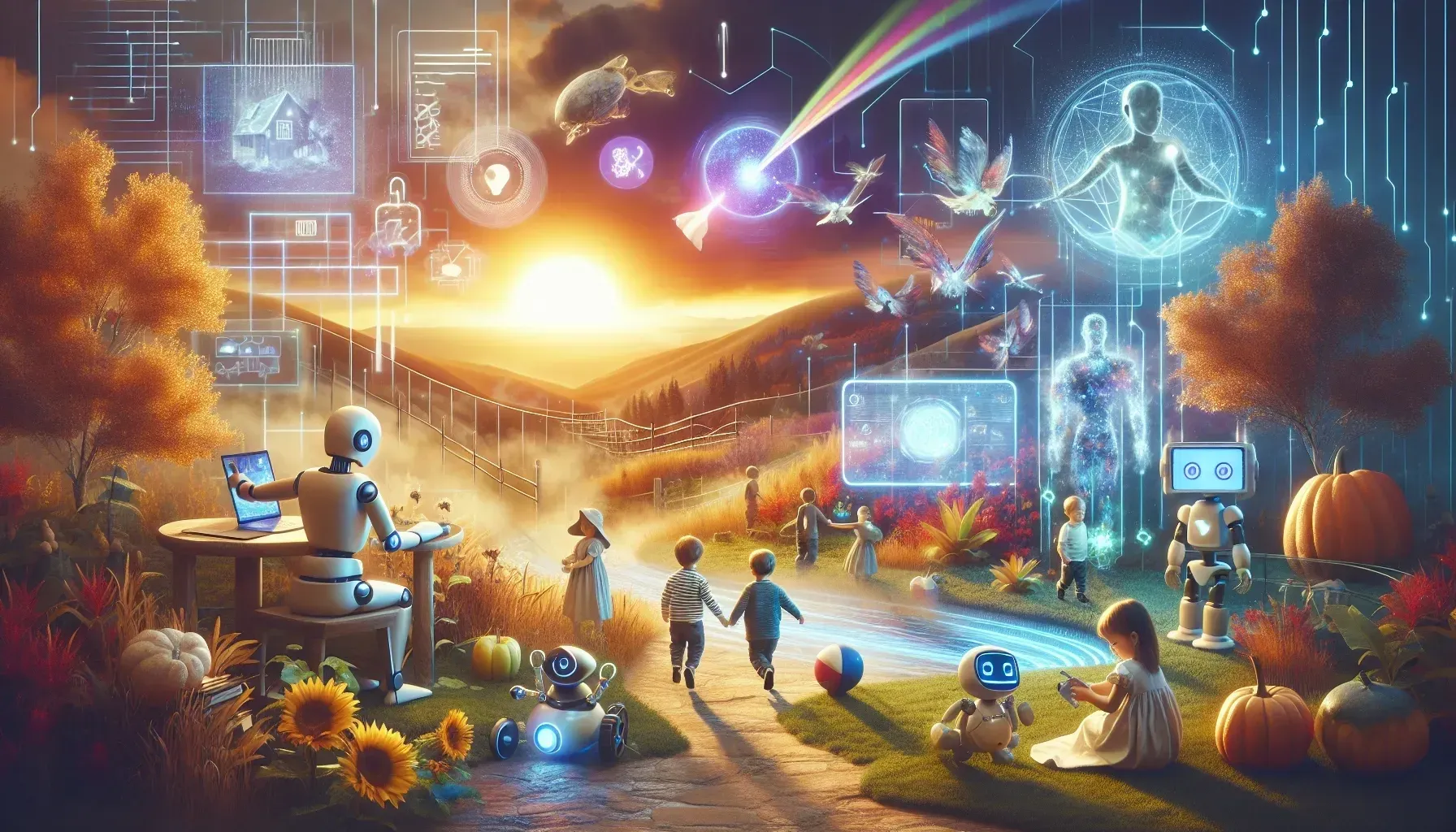Crafting the Future: Ethical Considerations in Parenting Robots and AI Companionship for Children

In today's technologically advancing world, discussions about the integration of robots and AI companions in children's lives have become increasingly prominent. The ethical implications of such innovations in parenting are a matter of great importance. As we navigate this uncharted territory, it is crucial to delve into the nuances and impacts of introducing AI companions to our children's lives.
Introduction to Robotics in Childhood
The integration of robotics and artificial intelligence in childhood introduces a plethora of intriguing possibilities, ranging from educational tools to interactive companions. These technological advancements hold the potential to revolutionize learning experiences and enhance social interactions for children. However, it also raises pertinent questions regarding the potential risks and ethical considerations accompanying this rapid proliferation.
A critical concern is the impact on a child's emotional and social development when exposed to AI companions. While such technologies may provide companionship and knowledge, there arises the question of whether they hinder the development of empathy and genuine emotional connections, which are fundamental in human relationships.
Nurturing Empathy in Child Development
As children engage with AI-enhanced toys and devices, the safeguarding of their privacy becomes a paramount concern. The collection and utilization of personal data by these technologies raise crucial ethical issues. It is imperative for parents to understand and advocate for stringent measures protecting their children's privacy in the digital realm.
Advancements in AI companionship raise a pivotal question: are they meant to enhance human connections or potentially replace them? This dilemma necessitates a deeper understanding of how AI can complement rather than substitute human interaction within a child's developmental journey.
Privacy Concerns with Smart Toys
The ethical responsibility lies in programming AI companions to instill moral values while avoiding biased or harmful teachings. It raises essential questions about who defines morality and how it should be imparted through AI interactions, resonating with different cultural, religious, and ethical standpoints.
The Role of AI Companionship in Human Connections
As the use of child-interactive AI products transcends geographical boundaries, aligning with global standards becomes imperative. International collaboration is needed to establish ethical guidelines ensuring the responsible development and deployment of such technologies worldwide.
Related Article: Biological Rhythms in Parenthood: Unlocking the Science of Circadian Parenting Harmony
Programming Morality in AI Companions
Deep emotional connectivity with AI companions can potentially cultivate dependence, which sparks concerns about stunting a child’s ability to form meaningful relationships. Addressing these implications is crucial to ensure that children develop balanced emotional intelligence and authentic interpersonal skills.
Amidst the integration of AI companions in learning environments, it is essential to address disparities in access. Ensuring equitable distribution and accessibility of technology-enhanced learning tools plays a vital role in enriching educational experiences for all children, irrespective of their background or socioeconomic status.
Establishing Global Standards for AI Products
In conclusion, navigating the ethical considerations surrounding parenting robots and AI companionship for children necessitates conscientious evaluation of their impact on child development, privacy, emotional well-being, and societal equity. Balancing technological advancement with ethical responsibilities is pivotal as society moves forward into this new era of parenting.
Frequently Asked Questions
The integration of AI companions in children's lives raises several ethical implications, including concerns about emotional development, privacy issues, and the potential for dependency. Parents must consider how these technologies may affect genuine human relationships and ensure that their children develop essential social skills alongside technological interactions.
Parents can safeguard their children's privacy by understanding the data collection practices of smart toys and advocating for stringent privacy measures. It's crucial to choose products that prioritize data protection and to educate children about the importance of privacy in the digital age, ensuring they interact safely with technology.
Yes, emotional dependency on robots can hinder a child's ability to form meaningful relationships. This dependency may stunt emotional intelligence and authentic interpersonal skills. It is vital for parents and caregivers to monitor interactions with AI companions, encouraging balanced relationships with both technology and humans to foster healthy emotional growth.
Check Out These Related Articles

The Art of Uncomplicated Parenting: Navigating the Journey with Ease and Grace

The Digital Dilemma: Creating Tech-Life Balance for Kids in the Digital Age

The Tug of Tech: Ethical Parenting in the Age of Digital Innovation

